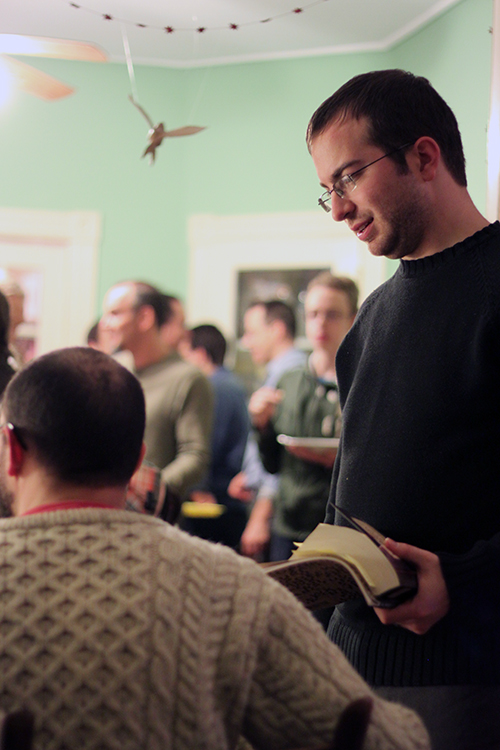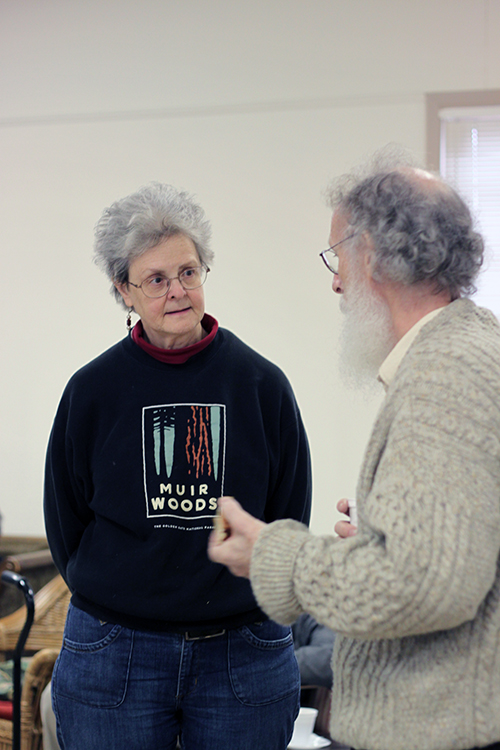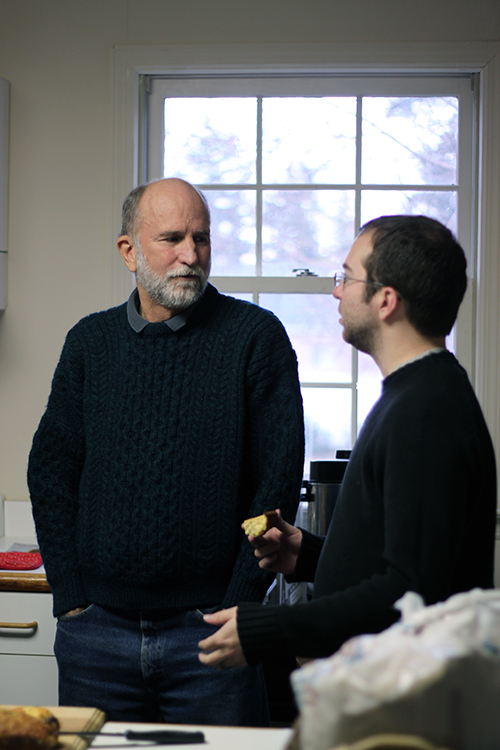
I belong to a faith tradition that highly values action. Drawing on the broad witness of Scripture, Quakers are convinced that the sign of true faith is that it is lived out in daily life. Reciting a creed, affirming a statement of faith, or even reading the Bible, is no guarantee of faithfulness. We can say, “Lord, Lord,” all we want – but if our lives do not demonstrate the content of our faith, our words ring hollow.
For many of us, this begs the question: What is the point of having shared beliefs at all? If the whole point of the gospel is right action, could it be that intellectual beliefs are superfluous at best – and, at worst, even harmful? In a world with numerous competing belief systems, holding firmly to a particular set of beliefs – for example, about who Jesus is – might seem exclusive or narrow-minded. In this environment, why not just focus on loving others as best we can, without all the barriers that belief often seems to present?
 This is a fair question. For far too long, most of the Christian community has put overwhelming emphasis on intellectual assent to propositional statements. We have often cared more about whether members of our community believe in Jesus’ virgin birth, or have prayed the Sinner’s Prayer, than about ensuring that our lives demonstrate the radiant character of our holy, loving and just God. Too often, our theological systems and narrow definitions become more important than practical efforts for justice, mercy and reconciliation.
This is a fair question. For far too long, most of the Christian community has put overwhelming emphasis on intellectual assent to propositional statements. We have often cared more about whether members of our community believe in Jesus’ virgin birth, or have prayed the Sinner’s Prayer, than about ensuring that our lives demonstrate the radiant character of our holy, loving and just God. Too often, our theological systems and narrow definitions become more important than practical efforts for justice, mercy and reconciliation.
In spite of all this, I am convinced that shared beliefs are important, both for the individual disciple and for our communities. While we have often over-emphasized the intellectual component of our faith, having a shared set of understandings about who God is, and who we are called to be, is deeply important. As we come together as one body, it is vital that we have a shared understanding of the shared mission that the Holy Spirit is calling us to.
 Speaking of one body, let’s consider the role of belief in a marriage relationship. A married couple does not have to share identical beliefs on every subject. For example, one spouse may have different ideas about aesthetics for their home, the best way to spend money, or the food they like to eat. In all of these things, communication is required and compromise is often necessary, but these differences in belief are not necessarily deal-breakers. A major part of deciding whether or not to get married in the first place is to determine if there are any differences in belief or lifestyle that would make the marriage simply unworkable!
Speaking of one body, let’s consider the role of belief in a marriage relationship. A married couple does not have to share identical beliefs on every subject. For example, one spouse may have different ideas about aesthetics for their home, the best way to spend money, or the food they like to eat. In all of these things, communication is required and compromise is often necessary, but these differences in belief are not necessarily deal-breakers. A major part of deciding whether or not to get married in the first place is to determine if there are any differences in belief or lifestyle that would make the marriage simply unworkable!
There are matters of belief that are so important that the marriage simply cannot function without agreement. For example, a shared understanding about what constitutes marital fidelity is crucial for the success of the relationship. If both partners believe that their only romantic involvement should be with their spouse, things are much more likely to go well for the couple. But if one does believe this and the other one doesn’t – watch out!
 Our life as a community gathered in Jesus shares a similar dynamic. When it comes to the core assumptions of the community, shared belief can make the difference between united action and muddled confusion – or even division. What is the content and character of the gospel that we have experienced and are called to share? Who are we called to serve? What is our mission and mandate as a community, and how does each individual’s unique gifts fit in? The process of faithfully answering – and acting upon – these questions builds a shared understanding of our faith.
Our life as a community gathered in Jesus shares a similar dynamic. When it comes to the core assumptions of the community, shared belief can make the difference between united action and muddled confusion – or even division. What is the content and character of the gospel that we have experienced and are called to share? Who are we called to serve? What is our mission and mandate as a community, and how does each individual’s unique gifts fit in? The process of faithfully answering – and acting upon – these questions builds a shared understanding of our faith.
For those of us who are a part of the Friends of Jesus Fellowship, we have agreed to a small set of shared commitments that help us to frame our life together as friends and disciples of Jesus Christ. This brief document contains elements of both belief and action, each informing the other as we grow together and listen for God’s living teaching. We accept that this short statement of commitment is not perfect; words are incapable of entirely capturing our experience of God’s love. Nevertheless, it helps us stay centered on the life that Jesus calls us to live, and on the work that he calls us to do.
What is your experience of the dynamic between belief and action? How does one inform the other? What impact does it make on our shared life when both are brought together?